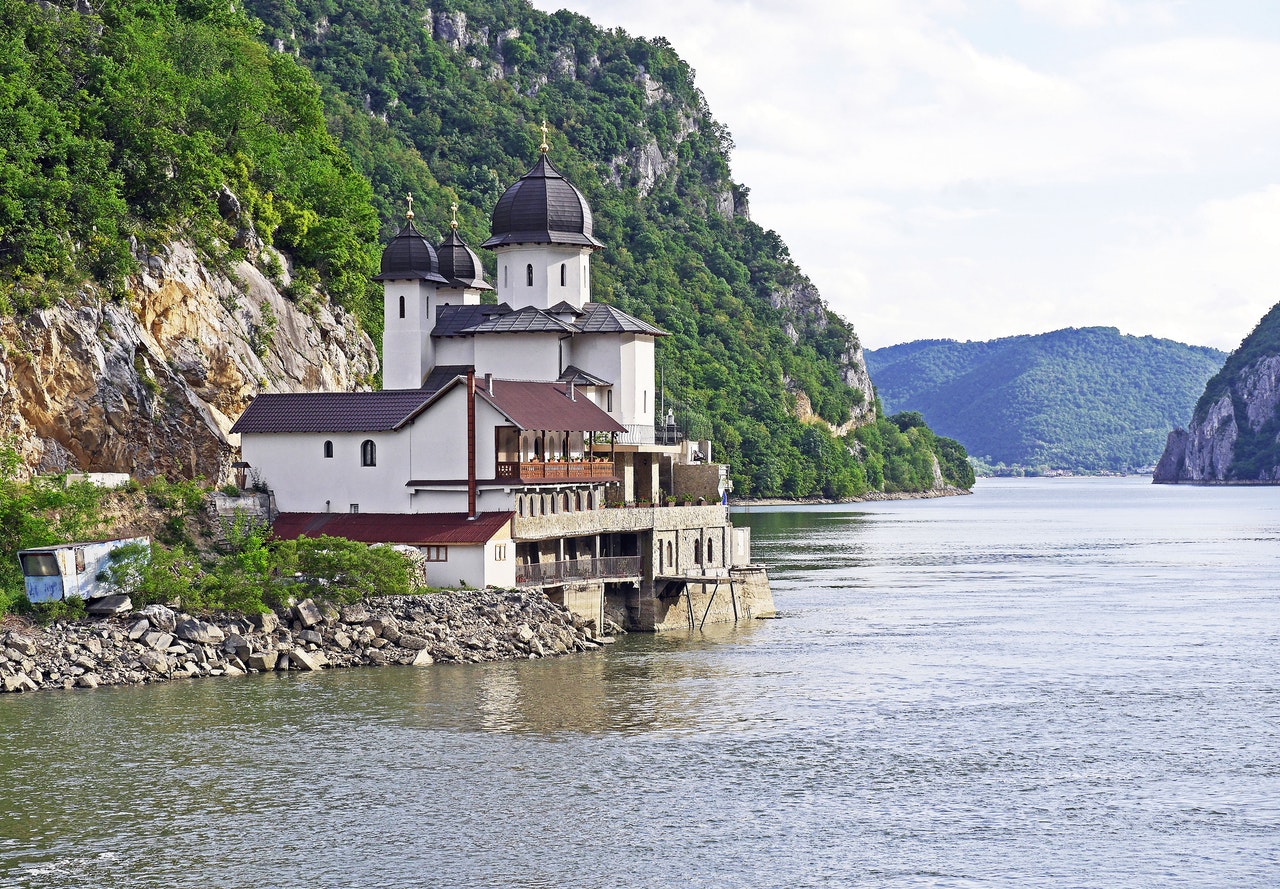listen
timestamped notes
6:29 ~ Sarma. From the Turkish word “to wrap” these are more than just a cabbage roll. The cabbage is specially treated and each region will have a slightly different take. Here’s a recipe if you want to impress your Balkan friends.
7:16 ~ Pljeskavica (pless-kah-VEE-tsah) will put any fast food chain’s burger to shame. Served in a pita and available within any appetite’s range, it is usually served with pepper relishes (ajvar) and a tangy cream (kajmak). The NY Times ran an acclaimed recipe.

7:32 ~ Gibanica (gee-VAN-eet-tsah) is an amazing pastry using phyllo pastry and filled with cheese. I could picture this more often at my dinnertime.
7:54 ~ Rakija and Šljivovica are fruit brandys that can range from 40 to 65% alcohol. The sometimes herbed Rakija seems to be making headway in fancy cocktail circuits. Šljivovica is the plum variety and can be equally as strong.
9:05 ~ Soccer clubs FK Partizan and Belgrade Red Star. The rivalry between the two don’t seem to have a western counterpart. COPA90 interveiws some of the players, coaches and fans.
11:30 ~ inat is a hard to translate concept. Most attempts draw on the troubled history of the region to show it’s effects on daily life and also the benefits when that same daily life gets hard. This attempt seems to me to be the most balanced.
13:45 ~ Along the Danube.

Golubac Castle

14:25 ~ Kopaonik Mountian. The ski resort has some awesome pictures on their site.
15:00 ~ Jackals. Since the 1970s jackals having been increasing in the area. Funnily enough I found an article from a Belgrade scholar who argues an invasive species of Golden jackals are saving millions on waste management.
17:50 ~ The big event is the European Universities Games 2020 happening, as Miloš said, in Serbia.
thoughts
I found it interesting that Miloš is only about 500 km (~300 miles) from Luka (e01 Slovenia) and even thought the two countries have a very similar recent history, the conversation was radically different. Being from Canada, the idea of different countries being mere hours away is an interesting concept; one that I didn’t lose in my 6 years in China (the 3rd biggest country after Russia and Canada.)
A word about inat.
In researching this concept, many sources were quick to use a wide brush in applying the negative aspects of arrogant nonconformity to the whole swath of the Serbian population. However, I don’t believe it applies any more than hygge applies to Danish people or guanxi applies to the Chinese. Instead of being an aspect of culture, I argue that these types of concepts are more akin to social norms. Social norms being the contextual social lubricants that allow us to exist as communities. Understanding these concepts adds oil to the gears of developing empathy but brandishing them as pointy sticks only adds sand.
So, yes, inat IS a part of a Serbs background and very possibly affect how they act/react to a degree. It is only a part though.
Thanks for reading and listening. See you next week where I chat with the first African of the show!
Have a slice!


